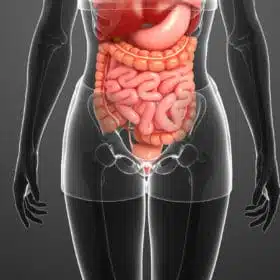Anyone who has ever dieted knows the pitfalls of such an undertaking. It is teeming with pitfalls and the yo-yo effect is usually not far away. If you also have problems achieving success in the context of a diet, it is not unlikely that you will also make one or the other elementary mistake that should actually be avoided. In the following, we present the five biggest mistakes you can make during a diet and show you how you can best avoid these serious missteps.
Mistake 1 - You take too little energy for too long a time
By now, word has spread to the far corners of the fitness world that an energy deficit is necessary to lose weight. However, many exercisers are still under the misapprehension that a large deficit will melt fat faster than a small one. For a few days and maybe even weeks, this may be true, but since the human body is evolutionarily wired for efficiency, it knows how to quickly adapt to the given amount of energy and adjust the metabolism to the decreased nutrient intake. So if you eat too little, your body assumes that you are in a famine and will do everything it can to consume as little energy as possible. This manifests itself in a significantly lower metabolic rate and increased secretion of the stress hormone cortisol. In the worst case, you damage your metabolism permanently, which in practice means that your body utilizes food extremely efficiently for a certain period of time and accordingly a lot ends up on your hips, although you are in a deficit in purely mathematical terms. It can take months for your body to return to normal. Consequently, you should avoid extreme diets and maintain a small daily calorie deficit. Alternatively, we recommend a moderate caloric deficit in combination with regular refeed days, on which you aim for a clearly positive balance.
Mistake 2 - You underestimate your protein needs
Since protein is the building material of muscles, this nutrient is essential for both building and maintaining your muscle mass. However, many dieters make the mistake of consuming too little protein, which is reflected in the fact that a significantly smaller proportion of the hard-earned muscle is preserved than would have been possible under optimal conditions. It is not possible to calculate exactly how much protein your body needs, but a good guideline for achieving optimal results is between 1.2 and 1.5 grams of protein per kilogram of body weight per day. In addition to the fact that proteins ensure the preservation of your muscles, they cause, especially in a calorie-restricted diet, the significantly longer retention of the feeling of satiety, which means that you are less often tormented by hunger.
Mistake 3 - Constantly changing the diet plan
The cornerstone of any sensible diet is neither the excessive consumption of a particular macronutrient, nor a particularly large calorie deficit, but the factor of continuity. It is important that you follow a clear and structured plan that allows you to track your successes in the medium and long term. You don't have to throw your entire diet concept out the window just because nothing happens for a week or two. This is completely normal, because especially when you train, numerous metabolic processes take place in your body that can influence your weight. Only if nothing happens visually over a longer period of time should you make a gradual adjustment and, if in doubt, seek professional advice. Your body needs time to adjust to a new diet. If you give it this time and don't immediately chase after every fad diet, it will thank you in any case.
Mistake 4 - Don't be taken for a fool!
Fitness magazines and journals are teeming with bold advertising messages that promise dieters the moon and toot their own horns with superlatives. Be careful and do not believe everything you read, because basically it concerns also in this context only enterprises, which want to exhibit a positive balance at the end of the year. Say goodbye to the idea that there are miracle cures that will solve your problems without any intervention. Focus on your nutrition plan and train hard.
Mistake 5 - Giving up when things don't go to 100% according to plan.
The reason why many diets fail is that exercisers often give up as soon as they realize that they are no longer 100% on their plan. No one can be at 100% all the time, but that doesn't mean that goal shouldn't always be strived for. Over time, you'll soak up the fitness lifestyle, so you won't even notice that you're giving up chocolate or swapping your Frappuccino for a classic filter coffee. You don't have to feel guilty about having a beer or a greasy pizza once a month either, that's part of it and perfectly fine as long as you try to stick to your plan and don't throw in the towel.








